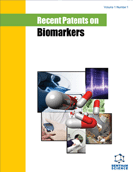Abstract
The liver is a central organ in homeostasis, playing a key role in fat, carbohydrate and protein metabolism. Acute liver failure (ALF) is a rare disorder that may occur as the result of severe liver injury, leading to encephalopathy and subsequent multiple organ failure. There are many causes for ALF, including drug-induced liver injury (DILI) and viral infections. Unfortunately, few treatments for ALF exist, which are based on N-acetylcysteine administration and intensive care support. The most severe cases will require liver transplantation (LT). Considering the elevated costs of LT and the high mortality rates, alternative therapies that restrict liver damage are warranted. It is known that hepatocyte death triggers and amplifies the liver inflammatory response, which could culminate in more tissue damage and consequent liver failure. In this regard, the modulation of the associated inflammatory response is emerging as a rational approach to both basic and clinical research, and there is sufficient evidence that inflammatory mediators (such as cytokines, chemokines and damage-associated molecular patterns) may be considered as valid targets for pharmacological intervention. In this review, we will discuss the peculiarities of the liver inflammatory response, its role on the progress of ALF, relevant patents, current available therapies and how recent basic research data may guide future clinical trials based on novel inflammatory biomarkers.
Keywords: Acute liver failure, cell death, DAMP, hepatocyte, inflammation, neutrophil
 6
6

